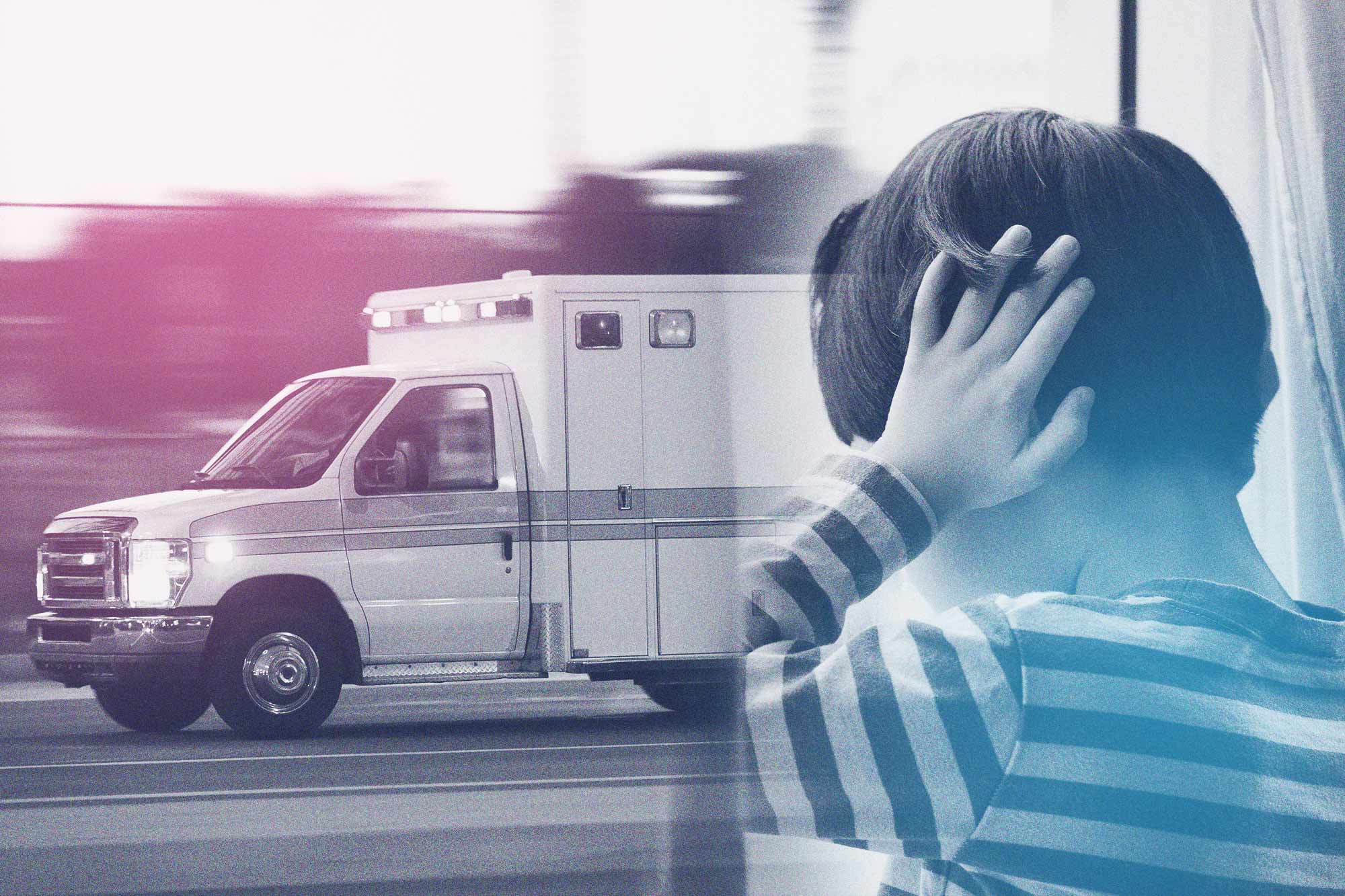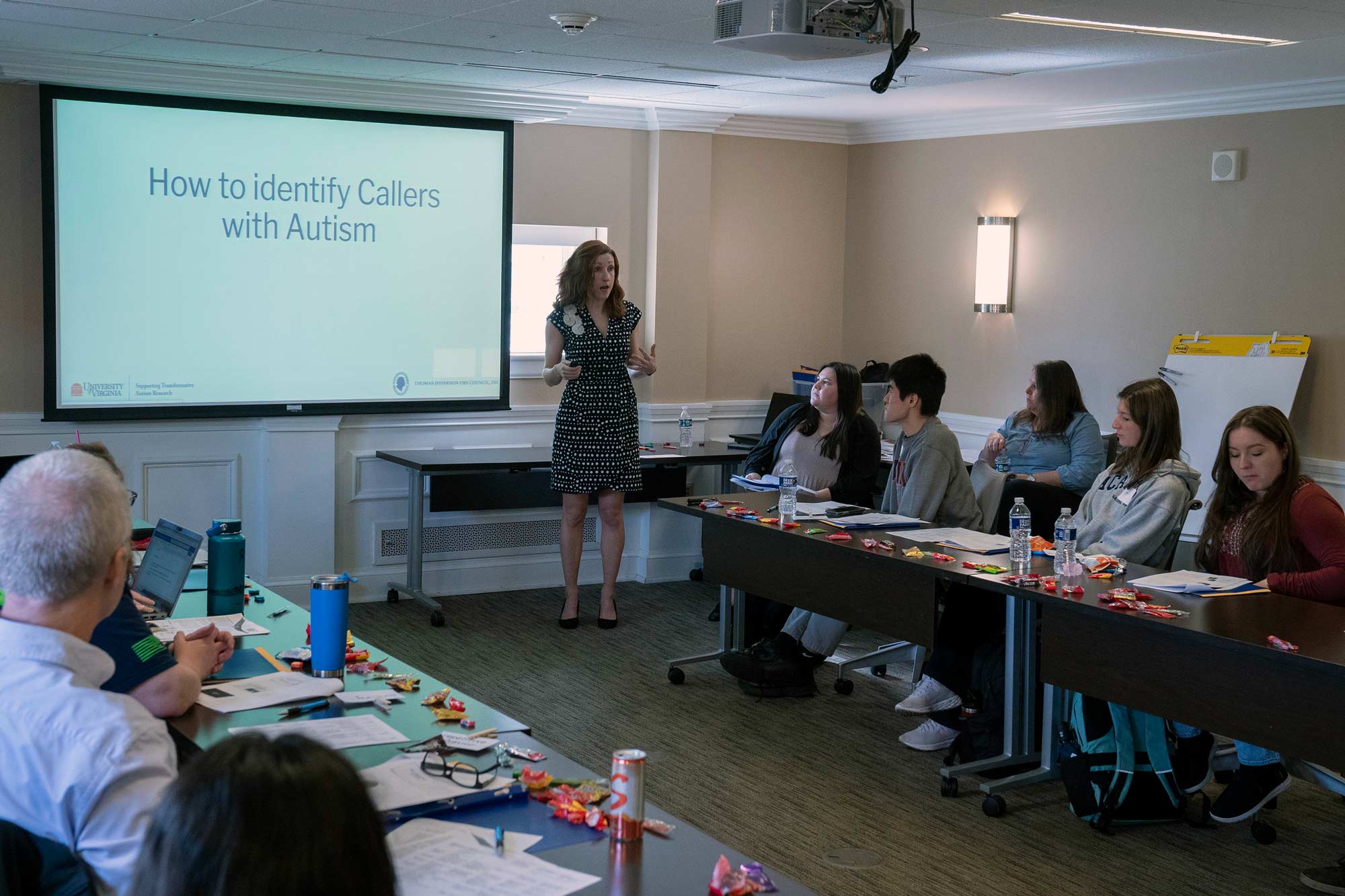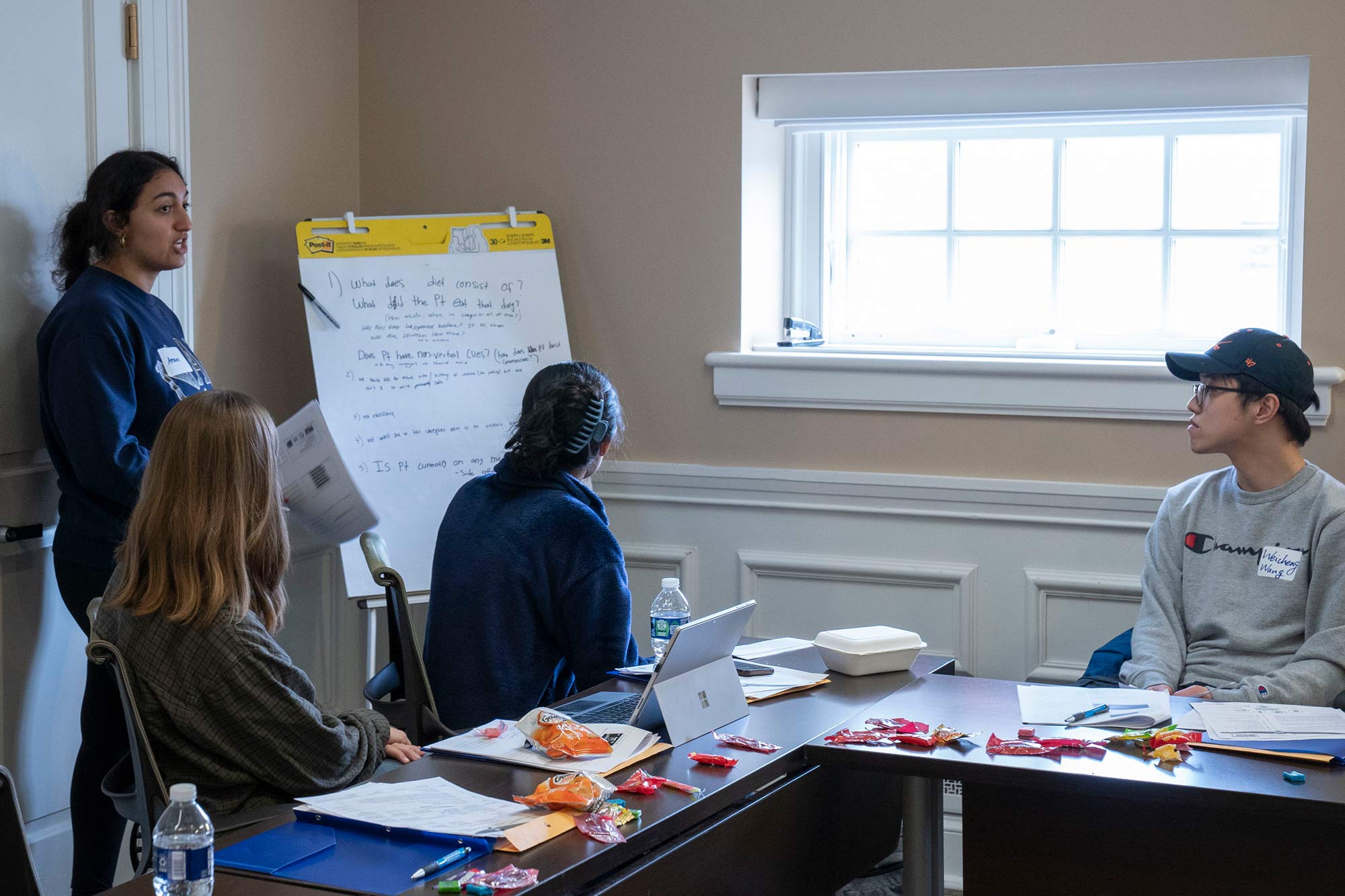It can be a recipe for trouble.
People with autism are seven times more likely than the general population to encounter emergency responders, but the common elements of an emergency response – flashing lights, loud sirens, strangers asking questions – are often a nightmare for people with sensory processing challenges.
People with autism – a neurodevelopmental condition that affects communication, social skills and sensory processing – often need help from emergency personnel because of co-occurring medical and mental health conditions and behaviors like self-injury and wandering. One in five children on the autism spectrum will have an encounter with law enforcement by the time they are 21.
Yet, most first responders receive no training on how to interact with and support autistic individuals and high turnover rates among first responders decrease the likelihood that learning will be maintained over time, said Rose Nevill with the University of Virginia’s Supporting Transformative Autism Research (STAR) initiative.
As the head of STAR’s Autism Research Core, Nevill supports autism research across Grounds and works closely with a large network of families and individuals with autism in the local community and throughout Virginia.
“What we’ve learned through this work is that, largely, families are calling 911 as an absolute last resort because they’re afraid of what’s going to happen,” she said.
A new training for first responders, developed by STAR and piloted earlier this month with local emergency medical technicians, including many UVA students, aims to change that.







